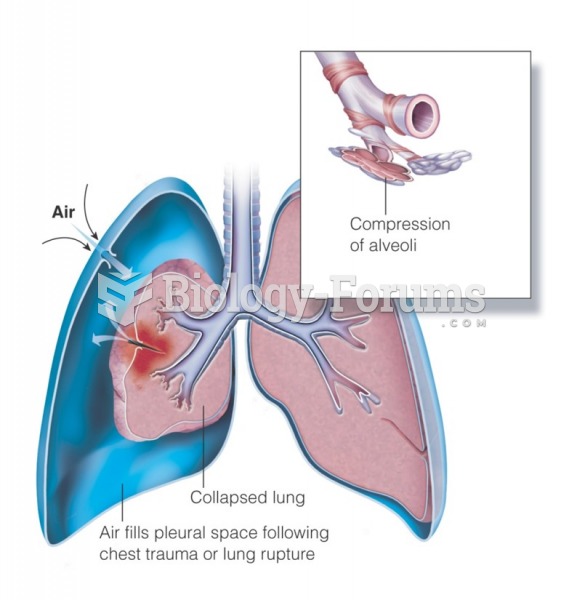|
|
|
Everyone has one nostril that is larger than the other.
Urine turns bright yellow if larger than normal amounts of certain substances are consumed; one of these substances is asparagus.
By definition, when a medication is administered intravenously, its bioavailability is 100%.
Drugs are in development that may cure asthma and hay fever once and for all. They target leukotrienes, which are known to cause tightening of the air passages in the lungs and increase mucus productions in nasal passages.
The use of salicylates dates back 2,500 years to Hippocrates's recommendation of willow bark (from which a salicylate is derived) as an aid to the pains of childbirth. However, overdosage of salicylates can harm body fluids, electrolytes, the CNS, the GI tract, the ears, the lungs, the blood, the liver, and the kidneys and cause coma or death.







